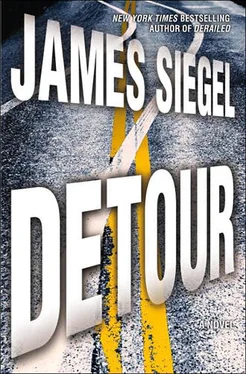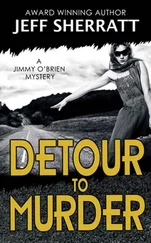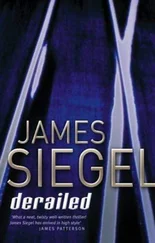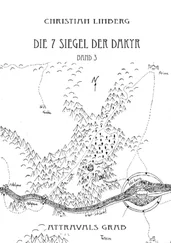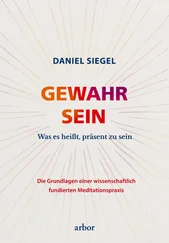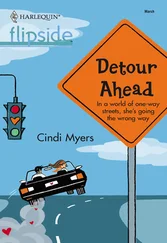It wasn’t by chance that he’d gravitated to a career whose sole purpose was controlling risk.
In actuary-speak: reducing the likelihood of undesirable events.
His risk management skills seemed to be lacking these days.
He rolled out of bed and stood on his bare feet. The wooden floor felt cool and ancient. There was no television in the room, no radio.
He needed a diversion, something to keep his mind off things. Something to read.
He tiptoed down the staircase, but it still protested with creaks and groans. Having no idea where the hall lights were, he had to feel his way along from banister to wall.
He finally made it into Miles’ office, where after some fumbling around he discovered the light switch just inside the door.
Click.
He shuffled over to the bookshelves. Okay, light reading was in order here. He seemed to be out of luck. The shelves contained the kind of books you might expect in the office of a lawyer. Law books, a veritable glut of them: thick, leather-bound, and singularly uninviting. There were a few other books there but nothing that looked particularly enticing. A Jewish Bible with a cracked, peeling binding. The Kabbalah —whatever that was. A biography of David Ben-Gurion. A wafer-thin volume titled The Story of Ruth .
It won by default.
He could use a good story. The story of anything . But when he pulled it out, not without some difficulty since it was wedged between New York Estate Statutes and Principles of Trial Law, a stack of papers fell out.
Paul reached down to scoop them up.
Letters, old ones by the look of them. Sickly yellow to off-white.
Dear Dad, Daddy, Pop, Father, the first letter began.
One of the video-game players from upstairs. Writing from summer camp maybe?
He felt like a voyeur, an intruder into the Goldstein family history. It made him think of his own family—or lack of one.
He felt a sudden and overwhelming sadness, mixed in with something he clearly recognized as jealousy. Miles was lucky. He had a wife who wasn’t sitting in Colombia under armed guard. Two children who dutifully wrote him from camp, delighting in using every existing term for father .
Paul would’ve been happy with one.
Dear Dad, Daddy, Pop, Father: Remember when you took me to the zoo and you left me there?
Miles had taken his boys to camp and one of them was registering his unhappiness. Reminding his dad of another time he’d been taken somewhere and left behind. Momentarily separated in the crowd of monkey watchers while Miles went off to purchase some cotton candy. Paul was creating his own version of the Goldstein family history—what familyless people do to pass the time.
He might’ve continued in this inventive mode if it weren’t for a sudden sharp sound at the door. One of Miles’ boys, standing there in blue pajamas rubbing his half-open eyes against the glare. He looked about fourteen, Paul thought—that gangly, awkward age between childhood and teen. The boy’s legs were too long for his body; the faintest fuzz covered his upper lip like a lipstick stain.
“I heard someone on the stairs,” the boy said.
If Paul had felt voyeuristic before, he now felt embarrassed. Caught red-handed reading personal letters between son and father. As if it were perfectly okay, as if he had the right to.
“I pulled the book out, and they fell out,” Paul said lamely.
The boy shrugged.
Paul slipped them back into the book, wedged it back onto the shelf.
“Well,” Paul said, “back to sleep.”
The boy nodded and turned as Paul shut the light and followed him out. They trudged up the stairs together.
“Did you go to summer camp?” Paul asked him.
“Huh?” The boy was still half asleep.
“Summer camp? When you were younger?” Paul said.
“Uh-huh,” the boy answered sleepily. “Camp Beth-Shemel in the Catskills. It sucked.”
“Yeah,” Paul said, “I didn’t like sleepaway camp either.” Paul had been sent to camp the summer his mom died.
At the top of the stairs Paul said good night and went back to his room, where it took another two hours before he actually fell asleep.
BY THE TIME PAUL WOKE, IT WAS MIDMORNING AND MILES WAS GONE.
“He left for work hours ago,” Mrs. Goldstein told him. “He said to please make yourself comfortable. So please ”—she smiled shyly—“make yourself comfortable. He’ll call you later.”
He’d found Mrs. Goldstein in the kitchen after he’d put his shoes and socks on and ventured downstairs. One of Miles’ boys was at the table reading a comic book— Spider-Man Wreaks Vengeance . This was Miles’ other son—he looked about two years younger than his brother.
“Hello, I’m Paul,” he said to the boy.
The boy mumbled hi without looking up.
Mrs. Goldstein sighed. “Tell him your name. When someone introduces themselves, you introduce yourself back.”
The boy looked up and rolled his eyes. “David,” he said, then immediately dived back into the adventures of a boy who introduced himself by entrapping and hanging you upside down in his sticky web.
Mrs. Goldstein was still wearing her wig, but this time Paul noticed a tuft of her own hair peeking out of one side. It seemed thick and dark, and Paul suddenly understood it wasn’t cancer, but religion, that dictated she cover her head.
“Would you like some coffee, Mr. Breidbart?”
“Paul. Please.”
“Please you want some coffee, or please call you Paul?”
“Please to both.”
“All right. But you have to call me Rachel.” She pronounced it with a guttural ch, like Germans do.
“Yes, Rachel. Thank you.”
“Sit down. He doesn’t bite.”
Paul sat down next to the boy, who didn’t seem particularly surprised to have a strange guest sitting at the breakfast table with him.
The humidity seemed to be gone today. Butter-yellow sunlight was streaming in between the geraniums in the window box. If his wife and daughter were back home, the three of them would’ve strolled into Central Park today and spread out a picnic blanket in Sheep Meadow. They would’ve luxuriated in the newfound aura of family.
Later, after Paul had taken a shower, after he had dressed in one of Miles’ crisply ironed shirts generously provided by his wife, after he had read two newspapers—one of them Jewish, which he dutifully leafed through without understanding one word—after he had basically done anything to keep from jumping out of his skin, Miles called.
“Okay,” he said. “Brace yourself. I got through.”
“What?”
“I called a few more times last night—nothing. Ten times this morning—still nothing. I finally got him this afternoon. Our friend Pablo.”
“And?” Paul felt the vague stirring of hope.
“He was suspicious, of course. To put it mildly. First he denied even knowing you. Even when I told him who I was, that I know everything that happened there. After a while he said okay, he might know you a little, but he had no idea what I was talking about. He drove you places, that’s it. I told him to relax—no one’s going to the police. His memory seemed to come back then. I told him about the house being burned down. I assured him we’ve still got the drugs. I think it’s going to be okay. He’s going to get back to me. He’s going to tell us how to deliver the bag. The where and when.”
“And Joanna? And my daughter . . . Are they . . . ?”
“They’re fine.”
Paul felt the large knot that had lodged somewhere in the pit of his stomach slowly begin to unwind. At least, a little.
“I asked Pablo if he was absolutely sure about that,” Miles continued. “I laid it out for him so there’d be no mistaking. No Joanna and Joelle—no drugs. I think he got it. It’s like litigation. You have to make them think you’ve got the upper hand, even if you don’t. Who knows? Maybe we do. We’ve got their drugs, right?”
Читать дальше
